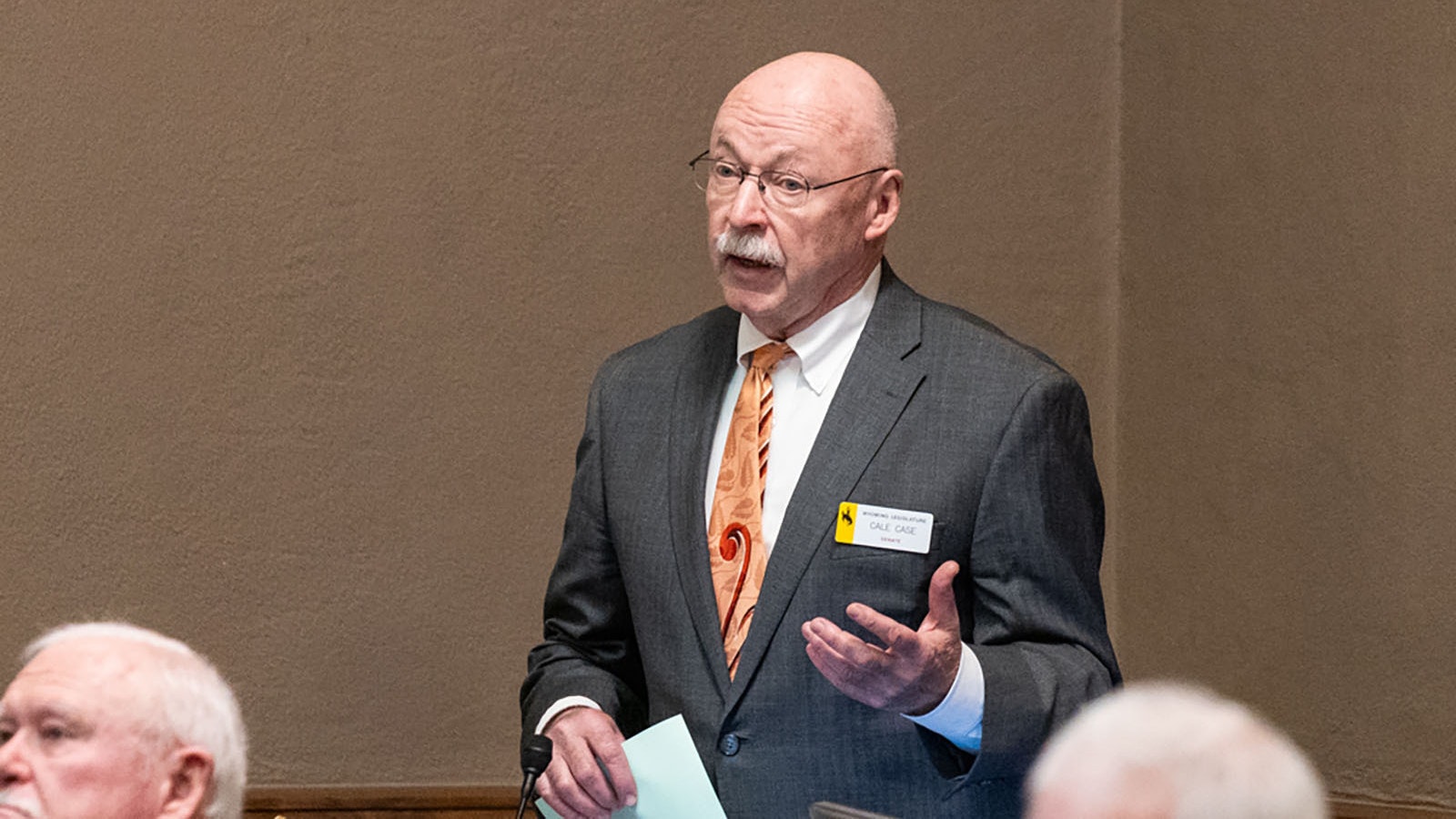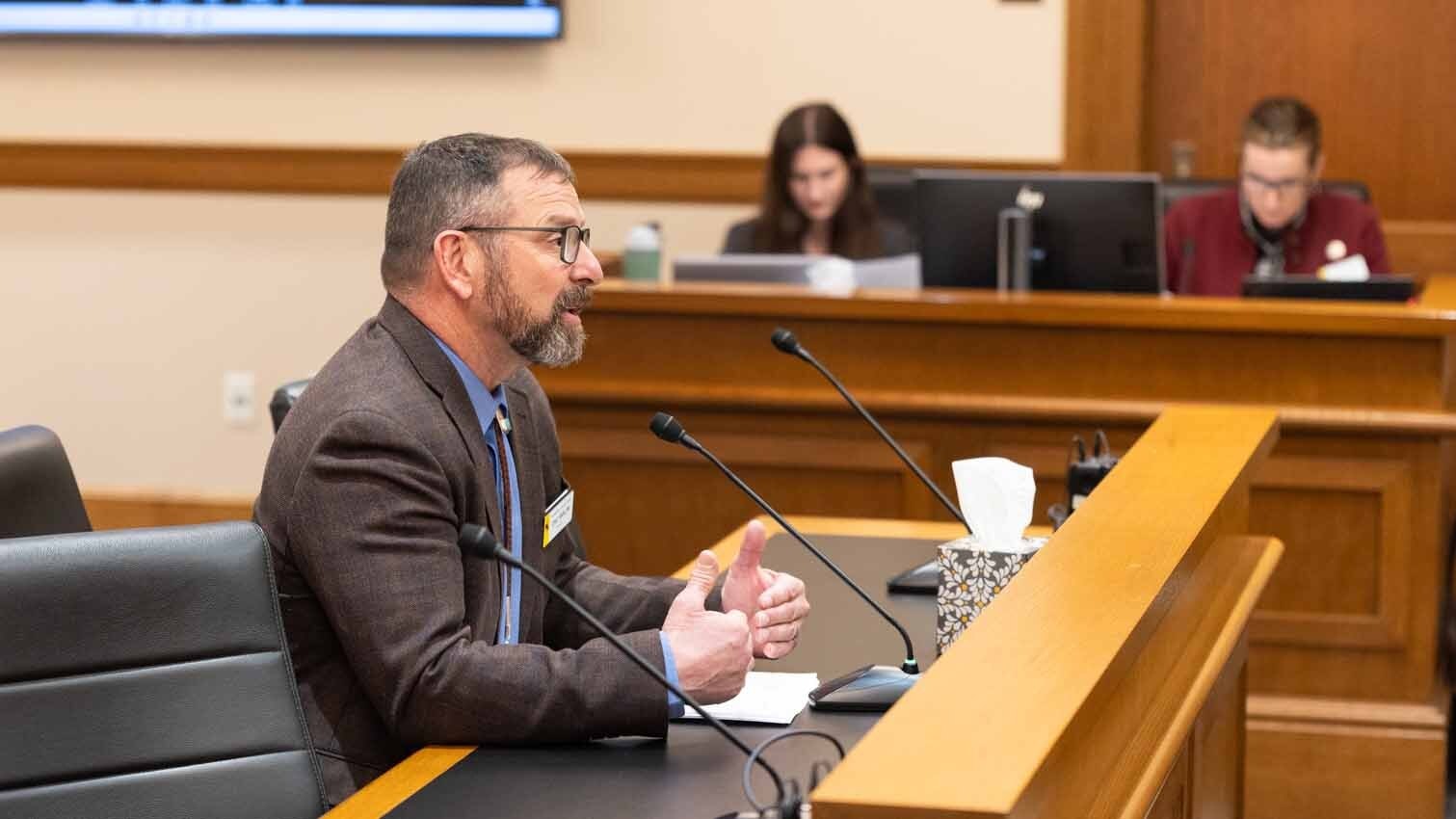Meeting in Cheyenne on Tuesday, the legislative Management Council advanced four bills aimed at reining in slot-machine-like gaming in Wyoming.
If the current drafts become law in the legislative session that opens Feb. 9, the bills would provide prosecutors more power to charge gambling crimes and strengthen penalties against money laundering while also giving local governments more authority to oversee simulcasting and horse-racing terminals.
The prevailing sentiment from the Wyoming legislature’s administrative arm Tuesday was that slot-machine-like gaming in Wyoming has exploded, needs more regulation and threatens the quaint diversity of small towns.
The industry players, conversely, pointed to the jobs and revenues they generate, the live horse racing events that the HHR machines support, and the concessions they’ve already made.
As proposed, the bills would:
• Give prosecutors clearer means of charging “House” style gaming operations but not friends who gamble together;
• Ban money laundering on a state level by making it a felony;
• Bar new permit approvals for skill-based amusement game operators in establishments that sell package, but not for-consumption liquor;
• Give town and county governing boards a kill switch: the authority to deny approval of simulcasting (virtually streamed horse racing) in their counties upon a showing of good cause. This one would also let local governments designate where historic horse racing terminals could sit in permitted locations, dictate their hours of operation, and impose other “reasonable conditions” on them.
‘It’s Sad’
Senate President Bo Biteman, R-Ranchester, called the horse-racing machines’ proliferation “sad.”
“In Sheridan, our famous, longtime, family-run pizza joint turned into a casino,” said Biteman. “And that was sad. Our community members are like, ‘Man, this is getting out of control. What are you guys going to do about it?’”
Biteman repeatedly floated the idea of putting all the machines at the live horse racing track sites.
Wyoming in 2013 opted to allow horse-racing gaming machines, on the condition that they would support the more costly investment of live horse racing. It was an attempt to revive the vibrant in-person races and the agricultural businesses associated with them, multiple lawmakers acknowledged Tuesday.
That goal is being met, Peter Liguori, part owner of Wyoming Horse Racing, told the Management Council on Tuesday.
The live-track operators have invested hundreds of millions of dollars into live horse racing and have watched the “purse” winnings for those events soar from $800,000 in 2021 to $3.4 million in the coming year, Liguori added.
His company’s focus is crafting tourist destinations, he said. It holds machine licenses that it’s not yet using, because it is actively expanding its facility footprint, he said.
Wyoming Horse Racing is already working with local governments, Liguori said.
Biteman posed a question:
“What was your attendance this year at the track for in-person spectators, that bought a ticket, and came to watch horse racing?”
Liguori said that figure varies but is roughly 500-600 people.
“So it’s safe to say,” parried Biteman, “the money’s in the slot machines.”
The machines feed large purses, answered Liguori. He said Wyoming is starting to attract national-level jockeys and horses, as its breeders fund has grown significantly.
That spills over into people renting grazing lands, paying for vet and farrier services, Liguori added, echoing the earlier testimony of the company’s attorney Matt Micheli.
Racing itself is pricey, he said.

‘Bizarre’
Biteman cast the business model as “bizarre.”
“There’s more people that go to high school football games,” he said. “We could have historic football terminals, and we could bet on past football games.”
The Cheyenne Frontier Days, conversely, are self-sustaining, he said.
“This is to me, bizarre, that we’re allowing gambling in the state of Wyoming only to support one industry where the people don’t even really show up,” added Biteman. “Then when we try to regulate it we get a roomful of lawyers and lobbyists to protect it – because there’s huge money involved.”
Biteman wasn’t alone.
Sen. Tara Nethercott, R-Cheyenne, referenced not just HHR or skill-based amusement – which were the two industries that lobbied for looser regulations Tuesday – but the whole map of Wyoming gaming.
That includes sports betting. Nethercott made a passing reference to the harm of gambling on young men. She bantered political consultant Jeff Daugherty, who was speaking personally as a consumer, into acknowledging that though he’s an “unabashed” capitalist, he supports a cap on total HHR machines in the state.
Daugherty had testified in favor of policies that would help live-track operators open one-mile tracks, which he said are safer for horses.
Be Fair Though
Affie Ellis, a former state senator and attorney who spoke for Cowboy Racing, defended the policies that have encouraged her client to sink millions of dollars into building a one-mile track in Cheyenne.
The bill expanding local controls and kill switches appears unfair, geared toward protecting existing operators and discouraging new players, like Cowboy Racing, she said.
It has due process problems and harkens a 2014 Wyoming court decision in which a judge mandated fair competition, Ellis added.
Correction - an earlier version of this story incorrectly said a cap on HHR machines advanced.
Clair McFarland can be reached at clair@cowboystatedaily.com.






